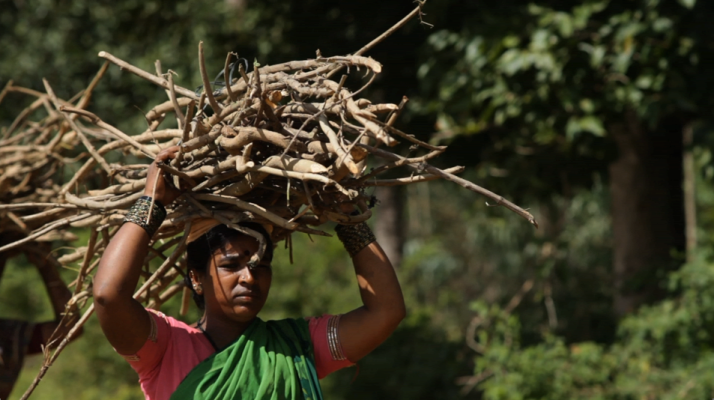Five Ways Clean Cooking Improves Health
Across the developing world, people cook over open fires or with simple stoves that burn solid fuels like wood, animal dung, and coal. Cooking this way emits small particles, carbon monoxide, and other noxious fumes at levels up to 100 times higher than recommended health limits. As a result, the simple act of cooking kills more than 4 million people each year. That's more than three times the number of people killed in traffic accidents annually, according to the World Health Organization. Cooking over open fires and smoky stoves also leads to a wide range of noncommunicable diseases, such as pneumonia, lung cancer, and cardiovascular disease.
The good news is it doesn’t have to be this way. Around the world, more and more people are buying cleaner, more efficient cookstoves, which require less fuel and produce far fewer toxic emissions. Some cookstoves, known as rocket-stoves, can burn solid fuels far more cleanly than traditional models and reduce fuel expenditures and deforestation in the process. Other stoves rely on cleaner burning fuels such as biogas, ethanol, liquid petroleum gas, solar, and electricity and can save lives and improve health, while also empowering women, protecting the environment, and improving livelihoods.

- Saving lives: In developing countries, women often spend hours cooking over open fires and inefficient cookstoves, which emit harmful and often deadly pollutants. The sustained use of clean cookstoves and fuels can dramatically reduce smoke emissions, and resulting exposure, which can save lives and reduce the burden of disease associated with cooking. In fact, in a recent report, the World Health Organization highlighted proven, cost-effective measures such as reducing the use of solid fuels for cooking as immediate actions countries can take to reverse the upward trend of environment-related disease and deaths.
- Lowering risk of burns: As mothers know, children enjoy playing at home. But there is a very real risk of severe burn injuries when rudimentary stoves, open fires, or unregulated liquid fuel-burning stoves are in use. Burns from open fires and unsafe cookstoves are an insidious risk faced by poor households, contributing to a substantial percentage of the estimated 265,000 burn deaths that occur annually. Because burns require prompt and sophisticated medical intervention often lacking in remote areas of the world, such injuries often result in debilitating scarring and loss of movement in their victims. A modern cookstove can help prevent burns, improve wellbeing, and save lives in the process.
- Helping children survive and thrive: Exposure to air pollution starts in the womb, and can cause widespread problems, including low birthweight, which increases the risk of health problems throughout life. Household air pollution causes 500,000 child deaths each year from acute lower respiratory infections, including pneumonia. Preliminary findings from studies currently underway in Ghana, India, Nepal, and Nigeria demonstrate that clean cooking can dramatically reduce exposure to harmful emissions and improve infant and child health.
- Reducing injury and exposure to violence: Women and children often have to walk long distances to get the fuel they need to cook, putting themselves at risk of head and spinal injuries, and pregnancy complications from the strenuous task of carrying heavy loads of firewood or other fuels. These long trips can also increase the chances of suffering from assault, gender-based violence, animal attacks, dehydration, and skin disorders. Cleaner more efficient stoves can reduce fuel consumption significantly.
- Cutting emissions and outdoor air pollution: Health risks don’t stop when smoke leaves the home. Instead, in many areas, fine particulate emissions from household cooking are a major source of ambient or outdoor pollution, which has major implications for both human health and the environment. In addition to deforestation and air pollution, burning solid fuels releases emissions of some of the most important contributors to global climate change: carbon dioxide, methane, black carbon, and other short-lived climate pollutants, all of which can also impact human health.
To save millions of lives and improve global health, we must tackle the clean cooking issue. The more than 1500 partners of the Global Alliance for Clean Cookstoves are working to create a thriving global market for clean and efficient household cooking solutions. We invite you to learn more about our work at www.cleancookstoves.org and help us spread the word about how clean cookstoves can help families stay safer and live more healthy, happy lives.
